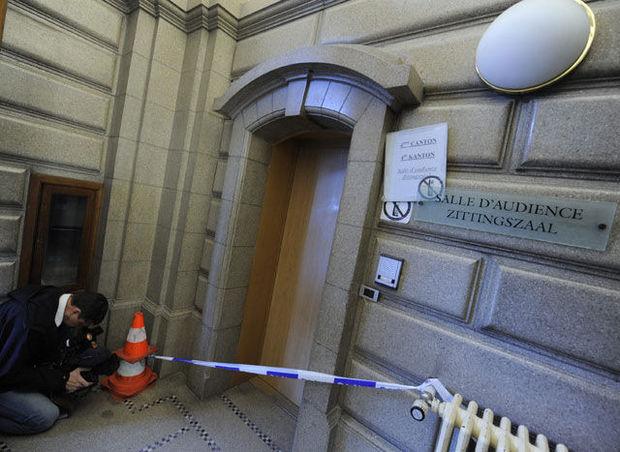
In het Brusselse vredegerecht schoot een man donderdagmorgen een rechter en een griffier dood. Beiden zouden binnen enkele jaren met pensioen gaan.
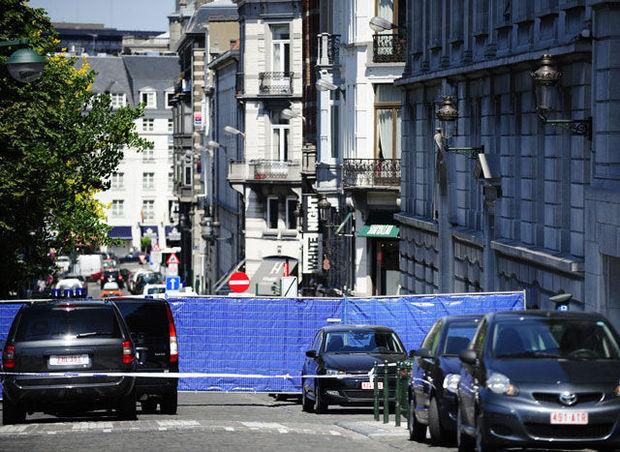
De dader kon donderdagavond in het Warandepark gevat worden. De man klonk verward en achtte de rechter verantwoordelijk voor het feit dat hij uit zijn huis was gezet.
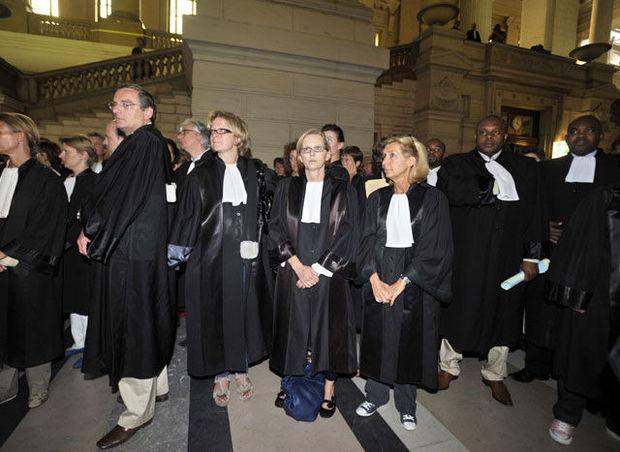
Enkele uren na de schietpartij werd een eerste huldebetoon gehouden door rechters, raadsheren en magistraten voor de neergeschoten rechter en griffier.

Tijdens de spontane manifestatie van advocaten en magistraten vlak na het schietincident vervoegen ook ‘gewone mensen’ de optocht.
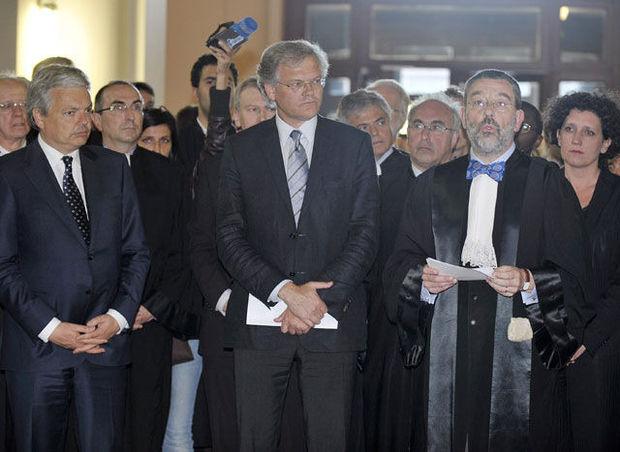
Heel wat politici toonden al hun afschuw over deze schietpartij. Minister van Justitie Stefaan De Clerck had het over een ‘catastrofe’.
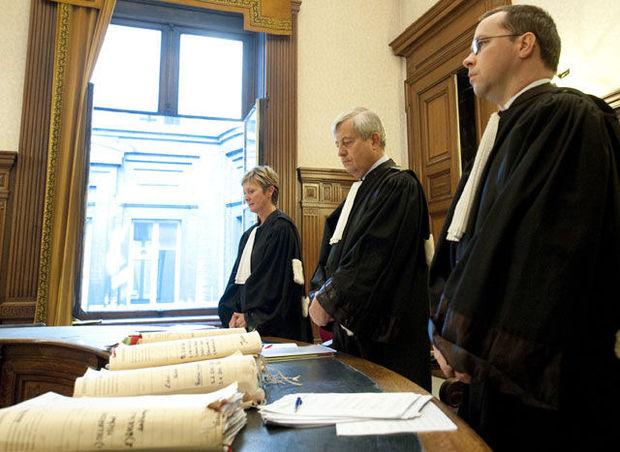
Advocaten en magistraten houden vrijdag een minuut stilte in het Justitiepaleis in Brussel. Ze zijn allemaal geschokt.
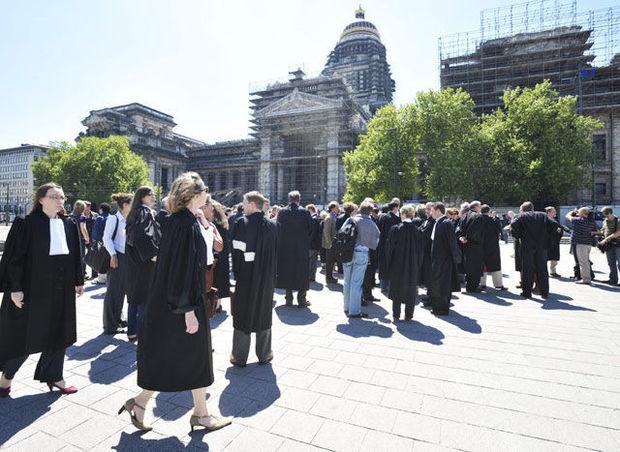
Vlaams Belang uitte niet enkel haar medeleven, maar besliste ook haar kiescampagne voor 24 uur uit stellen uit respect voor de vrederechter en haar griffier. Alle andere partijen hadden het over ‘een drama’, ‘een laffe moord’ en ‘een afschuwelijke zaak’.
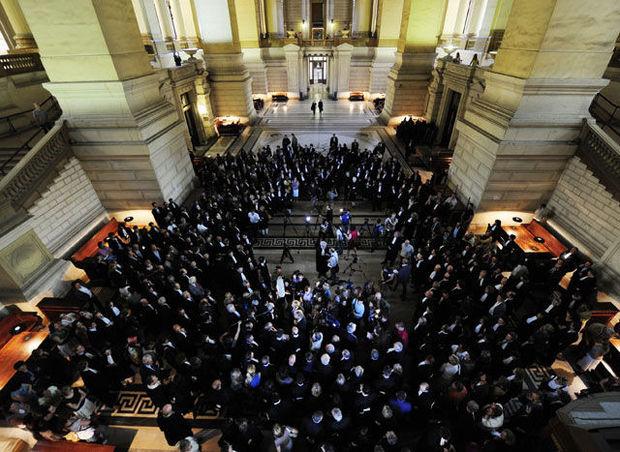
Het is de eerste keer in België dat een magistraat in zijn eigen rechtszaal wordt vermoord.
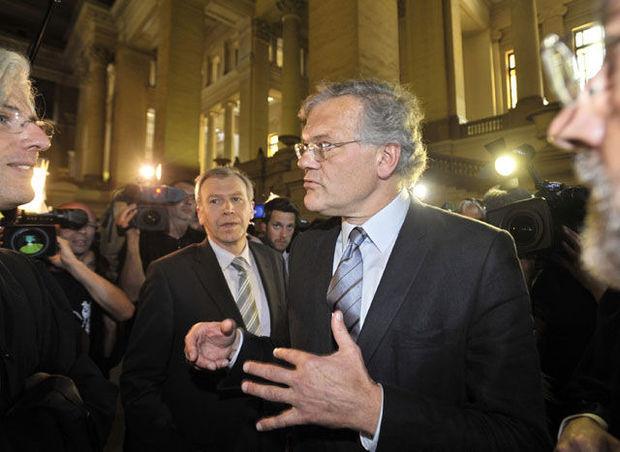
Automatisch rijzen er vragen over de veiligheid in Belgische rechtbanken. Minister van Justitie Stefaan De Clerck (CD&V) meent dat er inderdaad veiligheidszones moeten komen, maar zegt tegelijk dat niet alle zittingzalen van vredegerechten met politiemensen bewaakt kunnen worden. ” De prioriteit zijn de correctionele zittingen en de assisenhoven.”
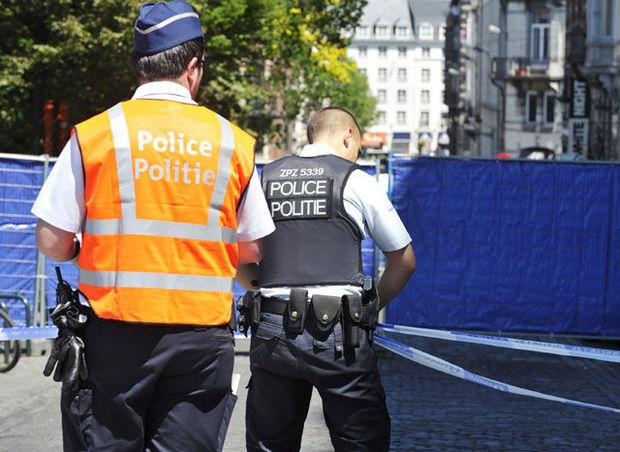
Net zoals De Clerck vindt ook zijn collega van Binnenlandse Zaken Annemie Turtelboom (Open VLD) het nog te vroeg om meteen te besluiten dat er extra beveiliging moet komen voor alle rechters en gerechtshoven. De Open VLD-minister vindt dat er eerst duidelijkheid moet zijn over de motivatie van de dader. “Er moet ook gekeken worden of het niet gaat om een toevallige vreselijke samenloop van omstandigheden.”
